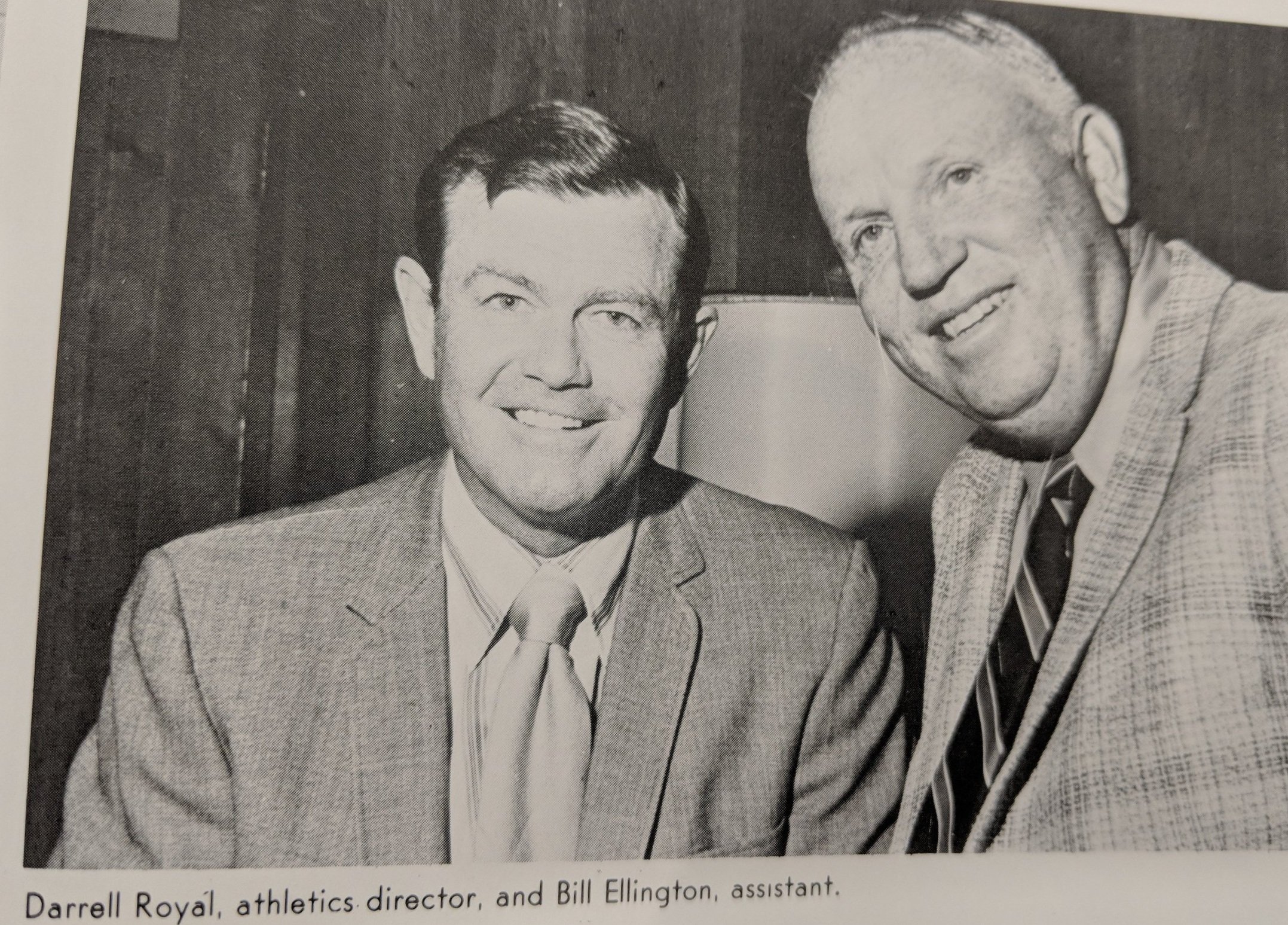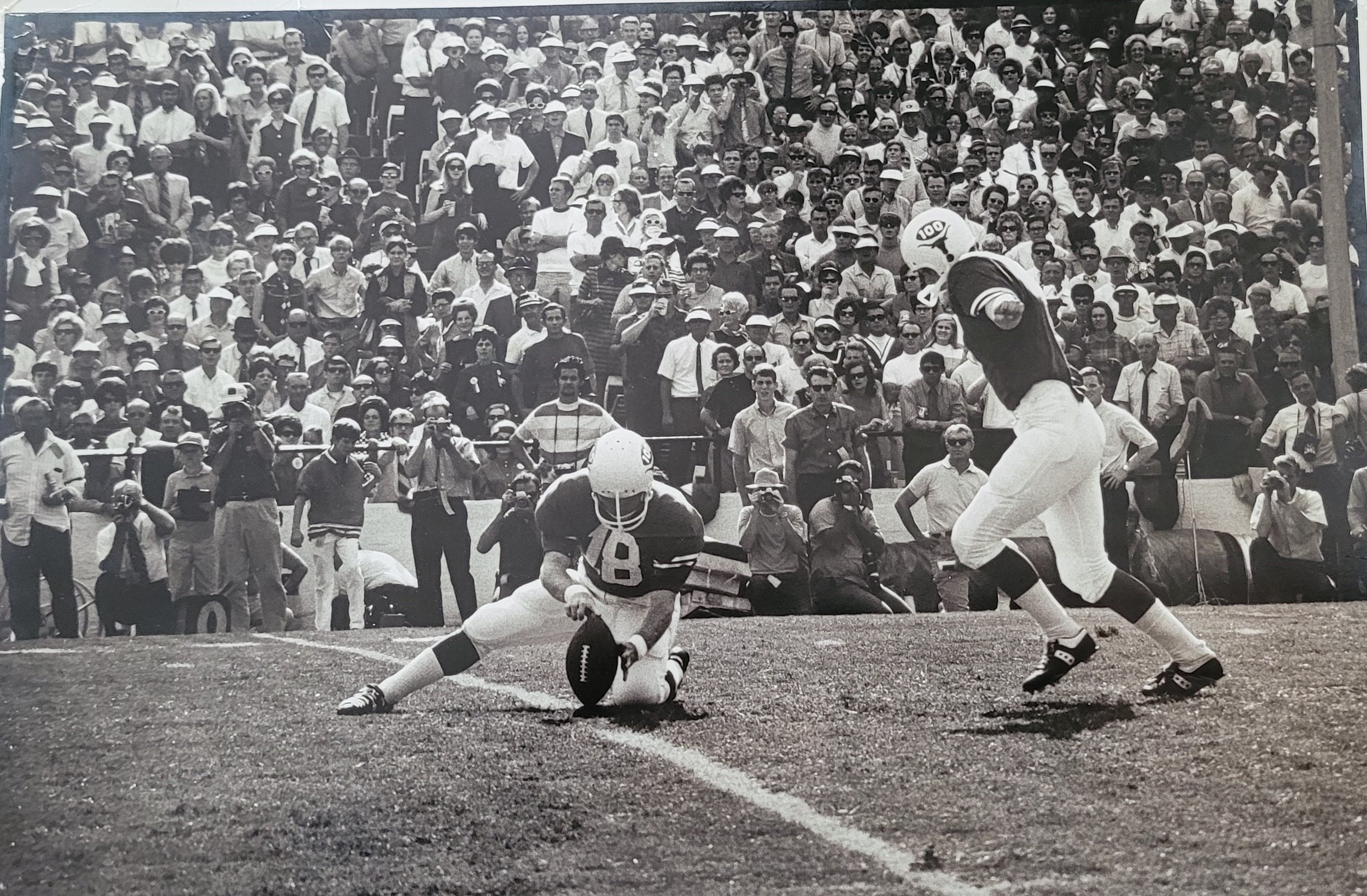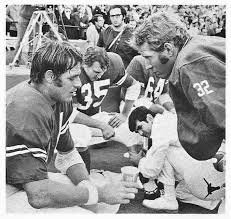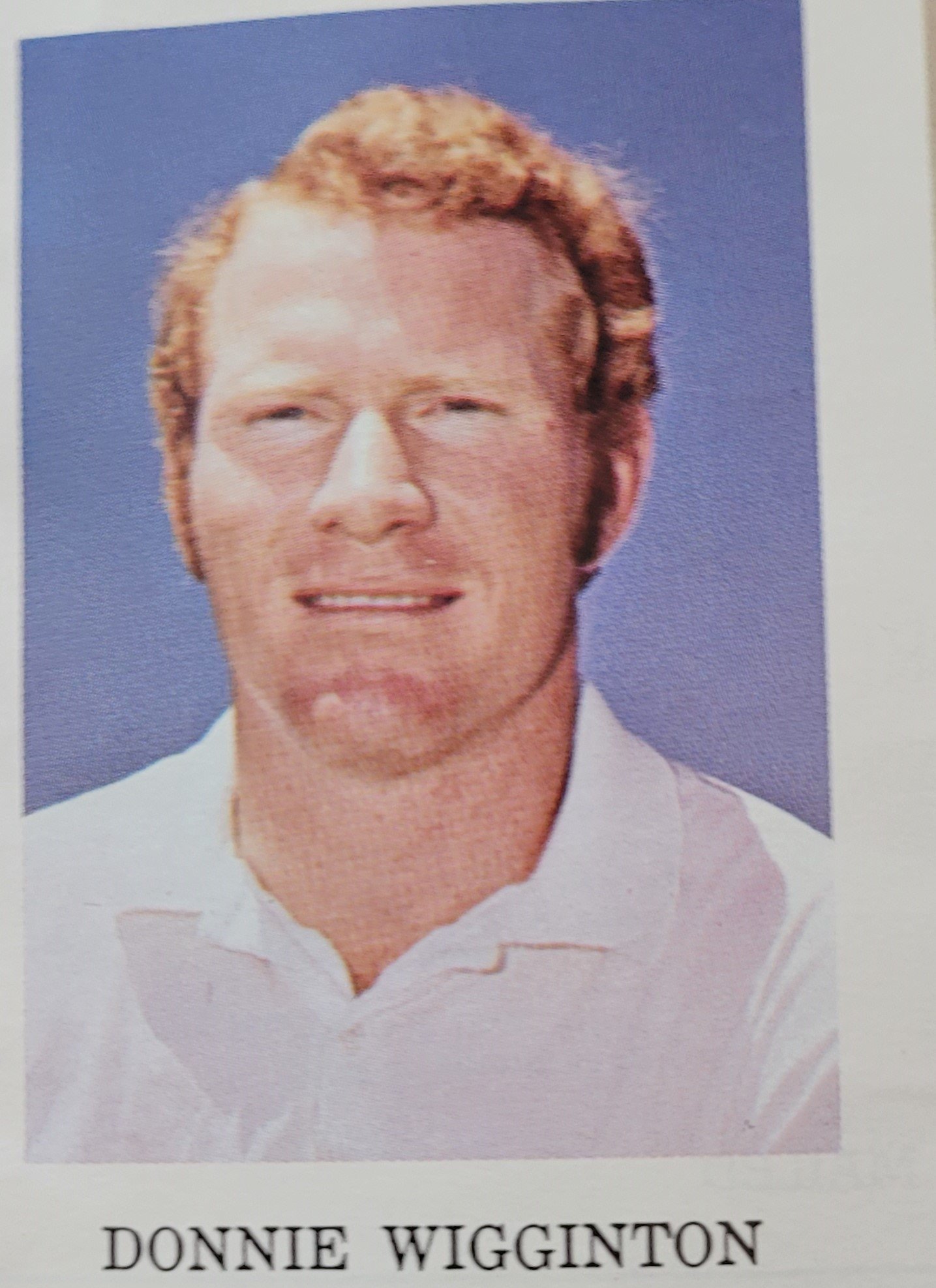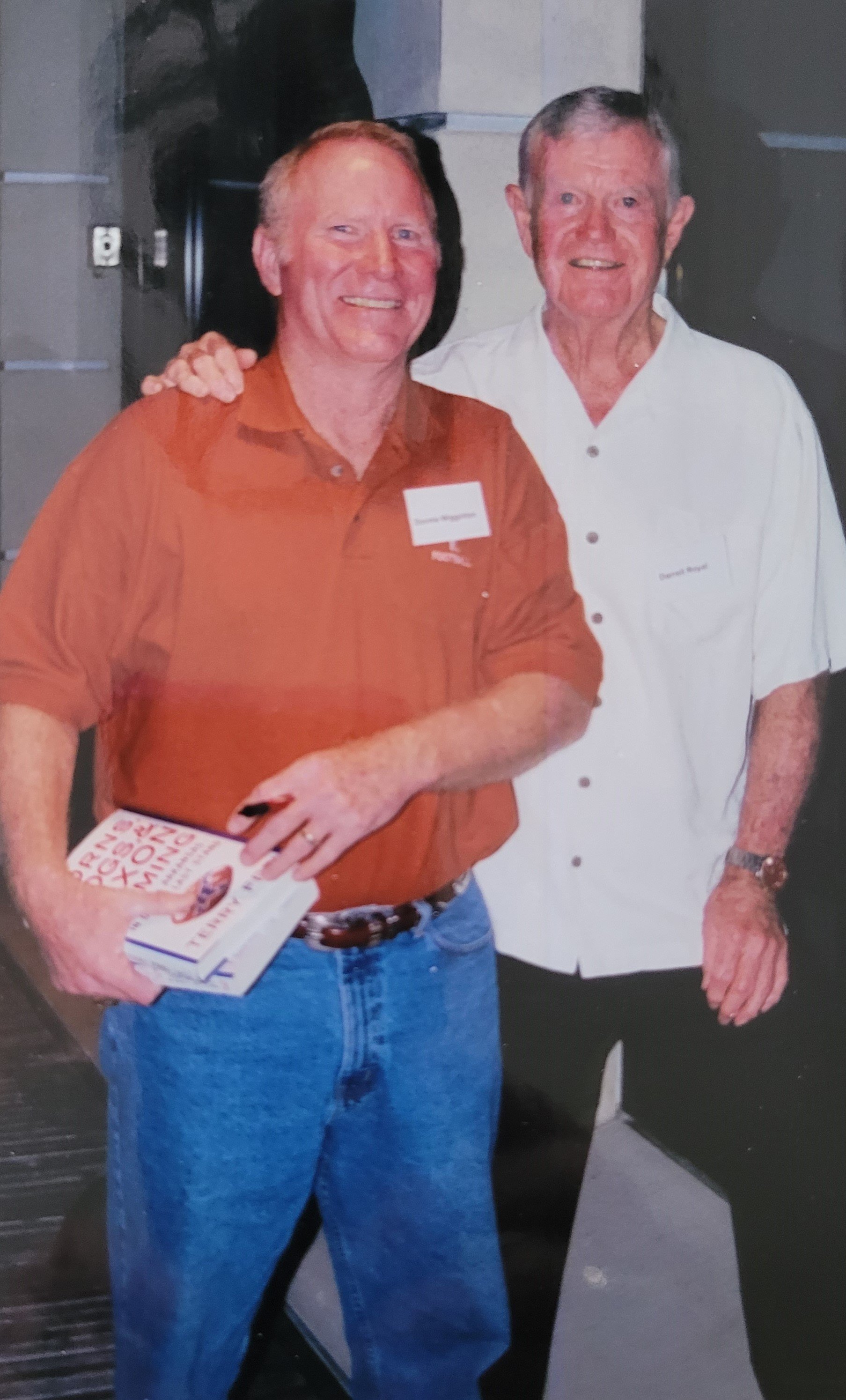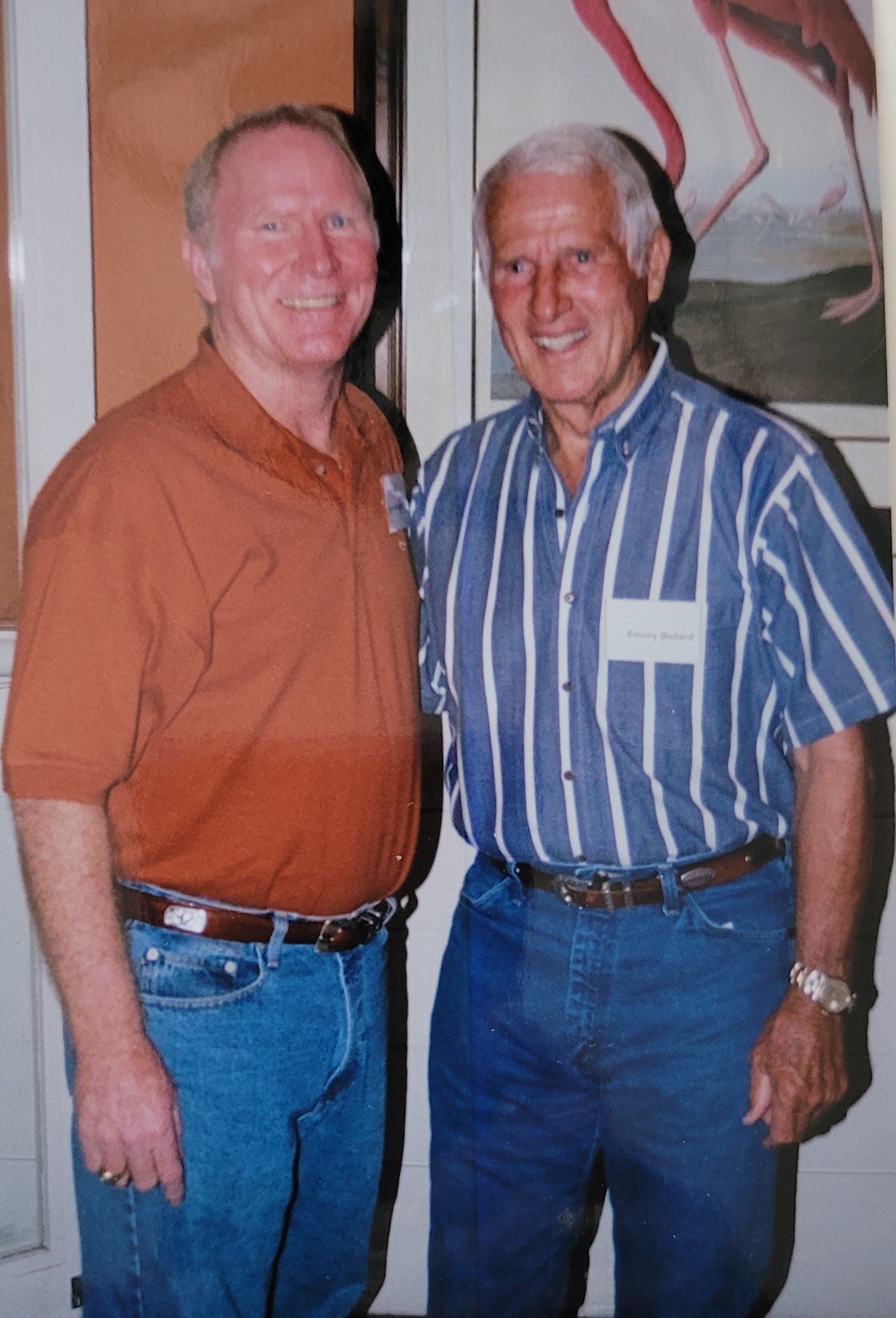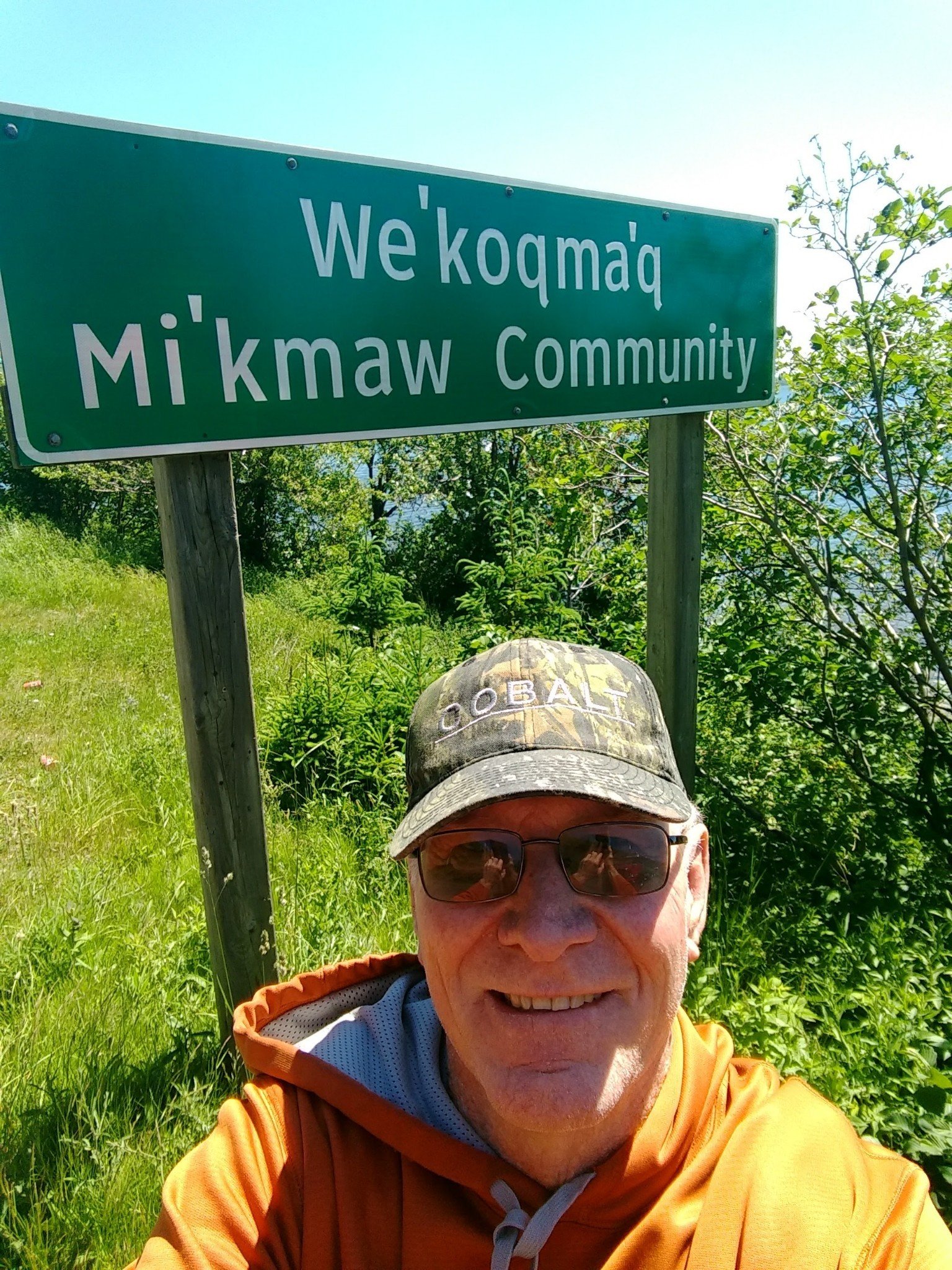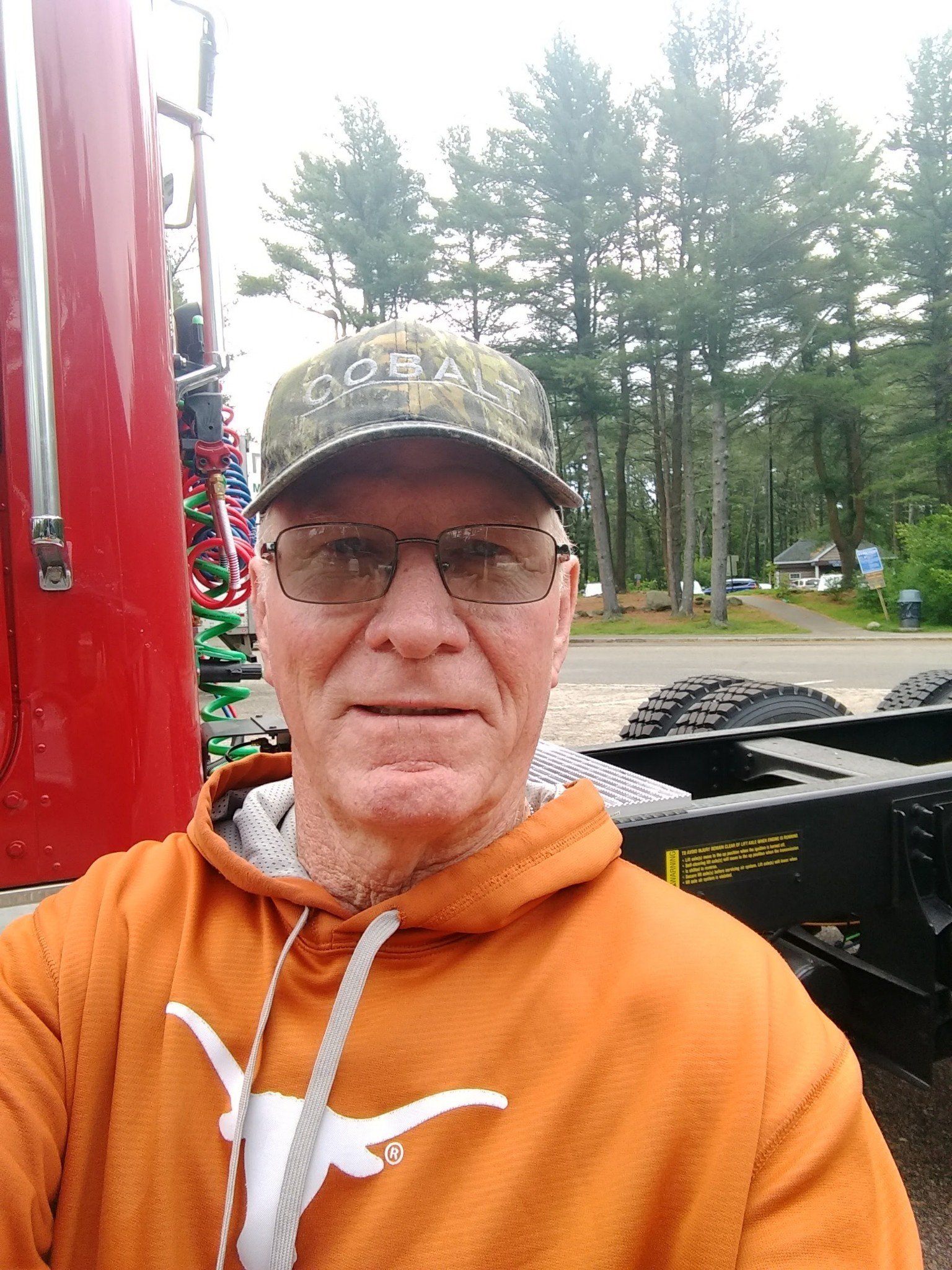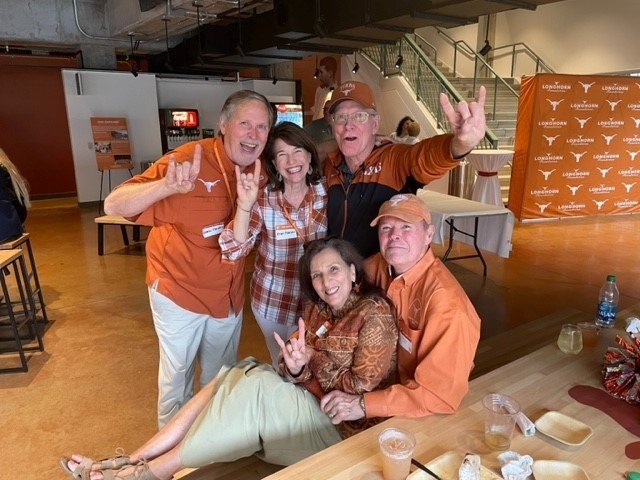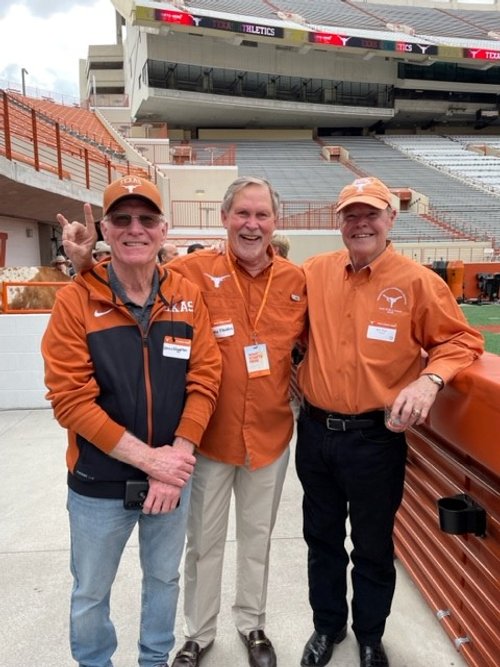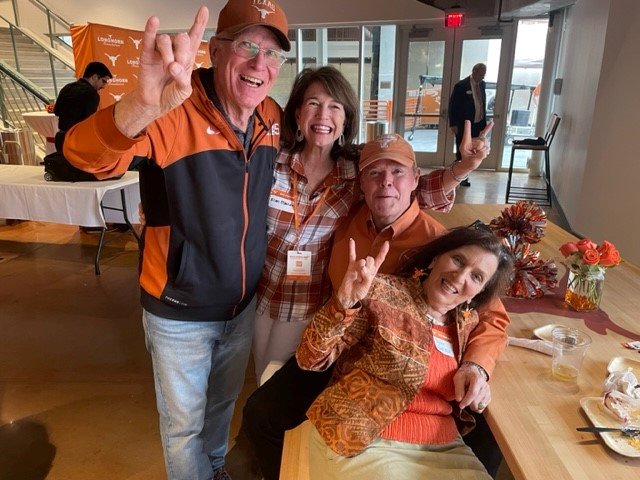The introduction to Donnie’s interview is at DONNIE WIGGINTON (squarespace.com)
TLSN: What do you remember about the competition and challenges that came with playing freshman football with a lot of other highly-rated signees from across the state? How much did being ineligible for varsity as a freshman -- and playing five games as Shorthorns -- help ease you and others into college life and the pressures of tootball at UT?
DONNIE: Back in the day, freshman football was a way of life...you came in, learned the Longhorn way of playing football...everything was a competition...if not from the coaches, from the players themselves. Our class, known as "The Worster Bunch," was one of the most highly decorated ones to every come to UT. Everyone that came in was either All-District, All-State or some kind of MVP of some kind. Fifty guys came in...this was the first year of limiting scholarships..and we would win our five games as freshmen, and be part of a 30-game winning streak (on varsity) and two national championships. These guys were the tops at every school they came from. No one ever had sat the bench and they weren't ready to start now.
Coach Ellington is on the right .
We were led by Coach Bill Ellington, the perfect guy. He was a laid-back, elderly guy who had been a high school coach in West Texas. His job was to take these baby chicks like a mother hen and lead them, introducing them to most of these new experiences called college. I really think his main job was to make sure we all got to the spring semester so the trainers and varsity coaches could get their shot at us to mold a winning team. He was great and got all of us to his finish line any way he could...he was there to solve any problems we had, and he had seen most of what incoming freshmen would experience. In the process of this, we went through that year undefeated, and from that point on, there wasn't any doubt in us, we could be really good.
TLSN: You're the well-known answer to a popular Longhorn trivia question....Who was the sophomore holder for Happy Feller's game-winning extra point in the epic 15-14 win over Arkansas in the Big Shootout/Game of the Century? It WAS a high snap, that's for sure. Fifty-three years later, what do you recall most vividly about that moment? Do you remember if you had told yourself to be extra-ready for a snap that wasn't perfect?
Donnie and Happy
DONNIE: The "Game of the Century" was an amazing setting for UT football and me. My roommate, Happy Feller, was one of the last great straight-ahead kickers in college football. We had practiced a thousand times at each practice throughout the season. Forrest Wiegand was the snapper. (Coach) Emory Bellard was in charge of us, and we worked in every kind of weather throughout that season, so we would never come up short at any time...never expecting that one point would make the difference in the national championship. The weather that day was low 40s and misting... a terrible day, weatherwise, for any game, much less one that had so much importance. Throughout the game, I kept my hands with hand warmers inside my jacket, always ready. In the fourth quarter, we found a way to tie the game after being behind the whole game. But as we got in position to kick the winning point, everything was just like we had practiced beginning back in those 100-degree days of August. Forrest snapped it, I caught it and set it on the tee for Happy, and he drilled it home. It's been with me for 53 years, and it's amazing how people to this day tell me they just saw the Big Shootout of 1969 on TV and didn't know a little guy like me could jump as high as I did as it sailed through.
TLSN: Well, you're too modest about the adept handling of a high, hard snap, but you did show some "ups" on that celebration of a leap.
What else do you keep in your heart and memory bank from anything that big day in Fayetteville?
DONNIE: As far as the time in Arkansas, the thing I remember most was actually at the end of our practice in sweats the day before the game. The captains (QB James Street, LB Glen Halsell, RB Ted Koy) gathered us under the goalposts. When James began to speak, it was mesmerizing. He talked about the season and how tomorrow would be with us for the rest of our lives. All the people at the game would be yelling and screaming throughout the entire game. We needed to hear only one thing... they were only yelling FOR the Longhorns. He believed everything was about how we were going to win...a fearless and dynamic leader. It was amazing.
TLSN: For Longhorn fans of the Darrell Royal era, you epitomize the "next man up" mentality better than just about anyone. How much pressure did you feel about taking over the reins when Eddie Philllips was injured and banged up pretty early on in '71, your senior year?
Eddie on left- Jim Bertelsen sitting in the middle and Donnie on the right
DONNIE: As for pressure, I didn't look at it that way. I was as prepared as anyone could be...a fifth-year, redshirt QB...been running the wishbone in practice since '68...I came back with the full intention of running it in any game I was called on to. As my luck would have it, an injury happened and I was there to do what I was trained to do. When the injury happened, Frank Medina, our trainer, took me back to his office and let me know in no uncertain terms I was ready...everything I had worked for was now in front of me. I had paid the price to get there and the time was now. Frank's wife was a great cook and he opened his refrigerator and gave me a piece of her cake that he had there. I had arrived! The rest of my history as starting QB for the Longhorns was about to begin.
TLSN: You were a husband and father while playing your senior season. What kind of impact did the responsibilities of home have on you as a player and student? And what did you miss from dorm life?
DONNIE: It kept me really focused that year, knowing my wife was pregnant during that whole season. Great support from lots of alumni and friends for her and myself. She actually was in the hospital for the Cotton Bowl with phlebitis. I was the old man on the squad with many great guys on the team that year. Because I had redshirted, almost all of my class was gone. My only regret was not being able to spend time in the dorm to develop as many close relationships with all the guys as I would have liked.
TLSN: What do you recall about the maturity and grittiness of the '71 team, kind of circling the wagons and surging after so many injuries contributed to one-sided, back-to-back losses to OU and Arkansas? Many observers wrote Texas off for any chance at a fourth consecutive SWC championship. What was the group mentality, and who are some of the leaders, besides yourself, who stepped up and refused to lose when the Horns went 5-0 to close out the regular season and win another title?
DONNIE: Seventy-one was a hard season for us from the standpoint of injuries. By the time we played OU we had lost 14 starters for portions of the season. To name a few starters and leaders of the team, Donnie Burrisk, Dan Steakley, Steve Fleming, and Lonnie Bennett in the backfield, along with Jim Bertelsen. And Jeff Zapalac, Jerry Sisemore, Dean Campbell, Stan Mauldin, and Jay Arnold...
TLSN: You were on the walking wounded, yourself, in that midseason crisis. When I talked to you over at the stadium for the unveiling of the QB busts in September, you mentioned the shots (cortisone?) you had to get just to be able to play. How bad was the pain when you were taking hard hits as a wishbone quarterback?
DONNIE: I was banged up and left the OU game early in the third quarter against them with the score 27-21, OU favor. It was all downhill (48-27) from there. I had separated my cartilage from my rib cage. I had to sleep in a chair all that week, getting two shots a day...a painkiller and healer. The next Saturday at Arkansas, I got a double dose of both. Didn't feel much, but it didn't help much. My body wouldn't respond to what I needed to do...was pretty useless, and we lost big. After that, nobody gave us any shot (at winning a fourth straight SWC championship). But we weren't dead yet. I was better, and there was work to be done. We reeled off five straight wins to go 8-2 and win the conference.
TLSN: In January '72, after the Cotton Bowl game against Penn State, you accepted a job to accompany Coach Emory Bellard at, of all places in the universe, A&M. Seriously, how much of a culture shock was that? And you famously came back to the '71 UT team's post-season team banquet, dressed in full Aggie cadet regalia. What do you recall about the reception you got?
Top row - Ted Koy, James Street, Steve Worster, Tommy Asaff - front row- Donnie Wigginton, Emory Bellard, Billy Dale, and Bobby Callison
DONNIE: After the Cotton Bowl on January 1st, I was at work January 2nd at Texas A&M. Emory Bellard hired me as a freshman coach. My wife was in the hospital in Austin. I hit the recruiting trail for the Aggies in January. On the 24th was our UT football banquet. I asked Coach Bellard if he thought I should go back to the banquet, and my wife was to deliver the next day. Rooster and Bunny Andrews thought it would be great fun to surprise everyone...at the banquet, with my name being near the end (alphabetical order), I slipped out and changed into an Aggie Senior Corps uniform, with boots and sword. When I crossed the stage to get my Senior blanket, the crowd went crazy...loved it...highlight of the banquet.
Next day, I became a father and life just kept changing.
TLSN: You've reminisced a little bit when I talked to you a couple of times earlier this year, about the guys Bellard, you and the rest of the A&M staff recruited to turn things around. The mid-'70s Ags ended up with a gold mine of future stars such as Ed Simonini, Bubba Bean, Lester Hayes, Garth Ten Napel, Richard Osborne, from my old high school -- Robert E Lee in San Antonio -- and others. I've gotta ask you this: What was it like, suddenly recruiting AGAINST your old team, your old alma mater?
DONNIE: Recruiting and coaching at A&M was never a real problem for me. Coach Bellard had been my coach for the previous four years, and I trusted him completely. Paul Register had been my high school coach, and we were going to coach the freshman team together. It was a great opportunity to get into college coaching that I never had possible. And competing against UT was like going against your older brother, trying to prove to him your value at the next level. Besides, I was a college graduate and a new father with a great opportunity and needed to start providing on my own.
TLSN: Looking back, what were the pros and cons of coaching football?
Aggie Coach Wigginton
DONNIE: In our first two years of recruiting, we set a foundation of talent that served our program well. In ten-game seasons, in our first season, we won three games. In year two, we won five....a little better. Third year (eleven-game seasons began), we won eight and were making a name for ourselves. We won ten each year for the next two seasons and tied for first in the Southwest Conference. Very exciting.
Our second daughter had come along by then, and the family had become even more important to me. I made some important decisions. Woody Hayes (All-time Ohio State coaching icon) had told our offensive staff when we visited Ohio State in the spring of '74 that "(there are) only two kinds of college coaches...those that had been fired and those that were going to get fired." I knew it was my time (to walk away). College coaching had become so time-consuming, and I was on the road more than I wanted, away from my girls. I decided if I was going to make a difference in their lives, I needed to do something else...so I left A&M in the summer of 1977 and spent the next 15 years teaching and coaching at the high school level. I was even an Athletic Director once.
TLSN: As a coach, what were the kinds of things you scrutinized in games?
DONNIE: The sad thing about coaching college football is you very seldom can watch a game just for the pure enjoyment. All the years of studying film, learning the nuances that different coaches use with their teams, all the responsibilities of the individual players, blocking assignments, gap controls, pressuring the QB...just myriad things that it takes to be successful.
TLSN: As a former quarterback and former coach, what's your take on Quinn Ewers thus far?
DONNIE: I always said quarterbacks get too much credit when you win and too much blame when you lose. Still true today. Lots of quarterbacks in college are still evolving. The ones that fail, stop evolving. Ewers is evolving. Everyone should give him a chance to see where he takes us. The jury is definitely still out on him, either way. Same with Sark. From my experience...he's on a good trajectory but the jury is out on him as well. Give him some more time to evolve and we'll all see the Sark era as head coach, not an offensive coordinator, shows out to be.
TLSN: What do you spend time on these days, Donnie...and what are you looking forward to?
DONNIE: The things that keep me going right now are my four grandsons...5,10, 21, 23...what new experience each one has to face and how do they handle it. I look back...'how did I handle those things?' I'm still growing as they teach me something new every time we are together.
TLSN: Okay, I like to close out with this one. What's something about Donnie Wigginton that most people wouldn't know?
DONNIE: The one thing not many people, except friends and loved ones, know about me....there was a stretch of about 16 years where I needed to be on my own and wanted to travel. Money had never driven me. I didn't have much. So I found a way. Delivering school buses, all kinds of trucks but never any with trailers...every kind of truck known.. As my Canadian friends would say, this took me through every state in the lower 48. Every state has rare things to do. Also, in every province in Canada, in all its wonder, including Victoria and Newfoundland ... beauty is everywhere we look. I used to say that all cities had interesting things, beautiful things, some great historical things, and...they all have somewhere you don't want to be after dark. Not many have gone where I have been. It has been a trip.
On the Road Again
TLSN: Wow. Thanks for everything, Donnie.
2021 Longhorn event with the Charlie Mauldin clan, Donnie Wigginton and Billy Dale enjoying a moment of fellowship with new friends.

